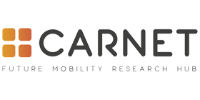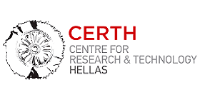The teaching methodology of the programme facilitates the student's learning and the achievement of the necessary competences.
Learning tools
A presentation of the conceptual foundations of the content to be taught, promoting interaction with the students to guide them in their learning of the different contents and the development of the established competences.
Practical classroom sessions
Knowledge is applied to a real or hypothetical environment, where specific aspects are identified and worked on to facilitate understanding, with the support from teaching staff.
Real or hypothetical situations are presented in which the students, in a completely participatory and practical way, examine the situation, consider the various hypotheses and share their own conclusions.
Outstanding business knowledge and experiences with high added value acquired during an outstanding professional career are presented and shared.
Problem-based learning (PBL)
An active learning methodology that enables the student to be involved from the beginning, and to acquire knowledge and skills by considering and resolving complex problems and situations.
Students are supported when undertaking group work, including theoretical sessions which provide the tools and knowledge needed to achieve a result. Ideas and results are exchanged between all the participating groups.
Activities that allow open discussions about case studies, articles or questions about specific topic. These spaces for debate aim to share points of view and encourage the participation of students.
Assessment criteria
At least 80% attendance of teaching hours is required.
The student's active contribution to the various activities offered by the teaching team is assessed.
Studies on a specific topic, by individuals or groups, in which the quality and depth of the work is assessed, among other factors.
Completion and presentation of the final project
Individual or group projects in which the contents taught in the programme are applied. The project can be based on real cases and include the identification of a problem, the design of the solution, its implementation or a business plan. The project will be presented and defended in public.
Work placements & employment service
Students can access job offers in their field of specialisation on the My_Tech_Space virtual campus. Applications made from this site will be treated confidentially. Hundreds of offers of the UPC School of Professional & Executive Development
employment service appear annually. The offers range from formal contracts to work placement agreements.
Virtual campus
The students on this continuing education course will have access to the My_ Tech_Space virtual campus - an effective platform for work and communication between the course's students, lecturers, directors and coordinators. My_Tech_Space provides the documentation for each training session before it starts, and enables students to work as a team, consult lecturers, check notes, etc.






